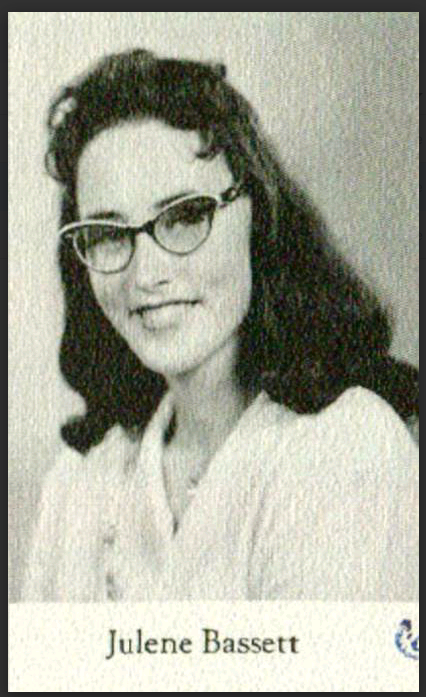On Learning to Trust Doubt v11
Steven Bassett
Bro. Gentry
Eng 106
25 May 2019
On Learning to Trust in
Doubt
Is it wrong to doubt or question gospel doctrines, or is it a normal part of developing a testimony?
I have learned that doubt is an essential part
of the learning process. We must
confront what our parents and teachers have taught us. A number of years ago I created a motto for
myself; “Real growth comes in the margins, with rising levels of uncertainty’”. We must be willing to evaluate
their truth claims if only to correct their incomplete understanding. "I think it’s much more interesting to
live not knowing than to have answers which might be wrong." (Feynman, p24)
I have been instructed since my youth to bear testimony of the
certainty of the restoration, that Joseph Smith was a prophet and that
God’s prophet leads the church today. I myself have born this testimony many
times from the pulpit. This testimony was a good first step. The first step in pedagogy is an imitation. In the long run, imitation will not sustain
truth exploration or increase our faith and reliance on God.
In an essay, Levi Petersen
speaks of losing his testimony. He loses it when he is confronted by
the Christianity of a Jehovah's Witness. He had been raised to
believe that The Latter-Day Saint Church has a monopoly on truth. In
the essay, he speaks of seeking the remainder of his life to returning to this
level of certainty. " If I differ
from the typical Latter-day Saint, it is because my anxiety is focused not upon
whether my immortal soul may suffer damnation but upon whether I have an
immortal soul." (Petersen,19) With this level of uncertainty, Levi has
learned to see the essential question of the immortality of his very soul.
Levi Peterson's wife was a non-Mormon. She asks him to
raise their daughter in the LDS Church because his church was as good as any
other, maybe a little better. She had the faith to believe the doctrines
of the Church would be beneficial to their daughter. She was
expressing a faith, if not a belief.
Even in his uncertainty Levi was able to pass his faith in
God onto his wife and child.
I myself have experienced this level of angst and
uncertainty. I have studied, and studied, and studied the doctrines
of the Church, yet this study brought me no lasting peace and
fulfillment. I remember going out one night and cursing God in my
unhappiness. This certainty has brought me no personal sense of
satisfaction.
There was a payphone that once stood in the Mojave Desert. It was
installed in the corner of a crossroad for the convenience of some miners who
worked nearby. In the days before cell
phones, phone booths were an essential part of life. The phone company continued to maintain the
phone booth long after the mine closed.
With the invention of the Internet, the world soon learned the number to
the phone. As a prank people would call
it just to hear it ring. Visitors camped
near the phone booth just to listen for the ring. I often thought of this story as I was
sitting in Sacrament Meeting. I wondered
if I was the pay phone waiting for a call or was I the one calling the pay
phone knowing no one would answer it. (Mojave Phone Booth,Wikipedia)
I am learning to live with uncertainty. Do my children
love me? Where do I fit in the lives of my wife and
children? Is God really there and does he answer my
prayers? Have I lived the life God wanted me to live? Who are my
large and righteous posterity? How do I hear his voice and follow his ways?
Even as my own level of uncertainty has increased, I have learned
to have more faith and trust in God. I
have been led to instruct my children in an unorthodox manner. I have taught them well The Gospel of Jesus
Christ. They know how to repent, and they know how to forgive and be
forgiven. I am most certain of this. I see it in their
eyes when I see their interactions with each other. When I see the pictures of my two children
and their older brother laughing and having a good time, I know that I have
made enough good choices to partially answer these questions. I have no
certainty, but I have hope, for now, that is enough. This
uncertainty brings me great joy.
When I listen to the talks in Sacrament Meeting for intent, not
for quality, when I pet my children’s newborn kittens, when I listened to my
Dad’s favorite joke for the fourth time yesterday, and three times today, when
I am grateful for the life Heavenly Father has led me to create, I know these
things are real life. They bring real
joy.
I will never be able to stop thinking about deep thoughts. My brain is hard-wired to do it. I can not stop it. I also know these deep thoughts are not real
life. I am grateful for my wife and
children and for them helping me to understand this truth and to live with
uncertainty. This
increase in uncertainty has to lead me to great faith, and reliance on God.
Feynman, Richard P., and
Jeffrey Robbins. The Pleasure of Finding Things Out: The Best Short Works of
Richard P. Feynman. Penguin, 2007.
Peterson, Levi S. “A
Christian by Yearning.” Sunstone, Sept. 1988.
“Mojave Phone Booth.” Wikipedia,
Wikimedia Foundation, 22 Feb. 2019, en.wikipedia.org/wiki/Mojave_phone_booth.

Comments
Post a Comment
I love to collect thoughts. I would love to collect some of yours, if they are mindful and respectable.